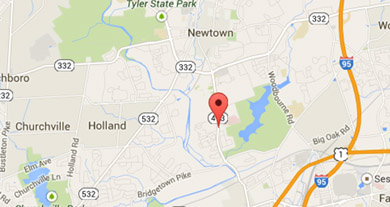What is a Summary Offense?
- A summary offense is any minor crime, initially heard and decided by a magisterial district judge. Many violations of the Motor Vehicle Code, such as, illegal parking, speeding, and going through a red light, are summary offenses. However, Driving under the influence of drugs or alcohol is not a summary offense, it is a misdemeanor which is a more serious crime.
How are Summary Offenses Enforced?
- Most summary crimes are enforced by a citation issued by a police officer to the person who is charged with committing the offense. The citation is handed by a police officer to the person after the officer has observed the violation. If there is no officer present or the officer decides not to issue the citation at the scene, a citation may be sent by mail.
What is a Citation?
- A citation is a brief statement of the facts of the incident, how the law was violated, and a specific statement of the law that is supposed to have been violated. The citation also contains instructions on what must be done in response to the citation. Commonly, when you receive a citation you must respond within 10 days. You must either plead guilty and pay the fine, or plead not guilty and request a hearing. Failure to respond to a citation can result in being arrested and brought to court and, in cases involving traffic citations, your license may be suspended.
What are Points?
- In order to monitor dangerous drivers and improve road safety, the Pennsylvania
Department of Transportation adheres to a point system. Most moving traffic violations
carry points, and when you accumulate too many points, the state begins imposing
hard-line penalties that whack your wallet and limit your mobility.
SPEEDING OFFENSES
| 6 to 10 mph over speed limit | 2 POINTS | |
| 11 to 15 mph over speed limit | 3 POINTS | |
| 16 to 25 mph over speed limit | 4 POINTS | |
| 26 to 30 mph over speed limit | 5 POINTS | |
| 31 mph or more over speed limit | 5 POINTS | |
|
Conviction of 31 mph over limit requires a hearing |
||

Exceed max. by >5mph in 65/70 mph zone
Fines + $35.00 + add. $2 per mph when
exceed max. by >5 mph in any other speed
zone
What Happens if I Accumulate 6 or more Points on my License?
- A first-time accumulation of 6 points means you will have to pass a written exam
based on safe driving practices, department sanctions, and related safety issues.
If you do not pass the exam within 30 days, your license will be suspended until
you pass the test. If you do pass the test within the designated 30 days, 2 points
will be removed from your license.
What Happens if I Accumulate 11 or More Points on my License?
- An immediate license suspension is mandatory when you accumulate 11 points or
more. The duration will be based on your past suspension record:
- 1st suspension: 5 days per 1 point
- 2nd suspensions: 10 days per 1 point
- 3rd suspensions: 15 days per 1 point
- 4th and Subsequent suspensions: 1 year
Are Points Removed if I have a Spotless Driving Record?
- The state will grant point removal from your record for safe driving habits. For each 12 months you drive without getting a violation that results in points, a suspension or a revocation, the state will trim 3 points from your record. If you can cut it down to zero points and keep it at zero for 12 consecutive months, the state will reward your conscientious ways by treating any subsequent point totals like they are your first.
What if Some of the Information in the Citation is Wrong?
- Minor mistakes such as a misspelled name, the wrong color or model year of a car, will most likely not invalidate the citation. However, major mistakes such as, listing the wrong section of the law claimed to have been violated, may invalidate the citation.
What if I Do Not Respond to a Citation?
- If you fail to answer a citation within 10 days you can be arrested. When the
constable appears with the arrest warrant, you may avoid arrest in 2 ways;
1) Paying the amount of the fine plus an additional $5 and costs as security for
your appearance at the hearing.
2) Pleading guilty and paying the fine and costs.
The constable will return the warrant and the security money to the magisterial
district judge, who will then send out a notice of the date and time of the hearing
to you and the police if a not-guilty plea has been entered. If you do not pay the
security money to the constable, you can be arrested and taken before the magisterial
district judge.
What if I Request a Hearing?
- When you request a hearing, the magisterial district judge will send notices to
you and the police of the date and time of the hearing. At the hearing, the police
officer and other witnesses for the prosecution will testify and then you or your
attorney may ask questions of the police or others who testify against you. Next,
you can produce your own witnesses and testify yourself if you choose to do so.
The police officer can question you or any of your witnesses. Next, the police can
introduce evidence to disprove what you or your witnesses have said. Lastly, each
side is given the opportunity to make concluding statements or arguments to the
magisterial district judge. The judge will then decide the case.
If you are found not guilty, all security you posted will be returned to you. If
you are found guilty, the security will go toward paying the amount of the fine
and costs.
What if I Fail to Appear at the Hearing?
- Once you have requested a hearing, it will be held whether or not you are present, unless a continuance has been allowed by the magisterial district judge.
Can I appeal?
- An appeal must be filed within 30 days by filing a form which can be obtained from the magisterial district judge or clerk of courts in the court of common pleas. The police generally do not have the right to appeal if you are found not guilty by the magisterial district judge.
Why do I need a Lawyer?
- It is in your benefit to consult with an attorney who handles motor vehicle violations
before you enter a plea of guilty. An experienced attorney may be able to provide
you with insights and options that you would never have known were available. In
addition, an attorney may be able to represent you at a hearing and resolve the
matter with the police officer to your satisfactions without actually having the
hearing
In the event that you want to plead not guilty and have a hearing it is best to
have an attorney because the hearing will be like a trial and all of the rules of
evidence and rules of criminal procedure will be enforced by the judge. Under such
circumstances you probably do not want to appear without an attorney while being
prosecuted by an experienced police officer.




